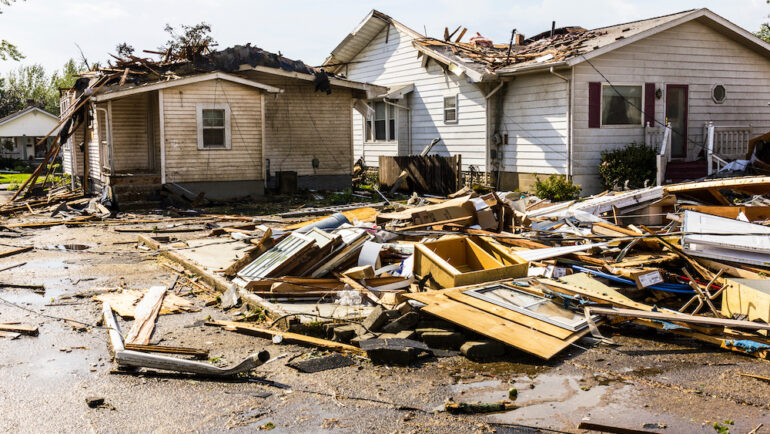The Federal Emergency Management Agency (FEMA) offers assistance after the President of the United States issues a disaster declaration. In the immediate aftermath of a natural disaster, victims are in a daze and may be confused about what is available. Here is an explanation from the FEMA website to help you understand what to do after a catastrophic event.
Three categories of federal assistance
FEMA aid falls under these categories:
- Individual Assistance helps individuals and families in the immediate aftermath of a disaster to secure basic needs, such as a safe, clean place to live, while seeking restoration or replacement of their home. This includes help for losses not covered by other sources, plus rental assistance, replacement of essential personal property, assistance with transportation when primary vehicles have been damaged, medical and dental assistance for uncovered injuries, and funeral costs.
- Public Assistance works in cooperation with state, local, and tribal governmental agencies and nonprofit organizations. Grants are made to governmental agencies and places of religious gathering for debris removal, lifesaving protective measures, and repair or replacement of damaged public facilities. These grants aid with the restoration of public utilities, roads and bridges, water treatment systems, and recreational parks.
- Hazard Mitigation works with governmental and private charities to reduce future risks. This process helps evaluate and reduce the risk of future hazards that could impact human life and property. This includes grants for projects such as floodplain management, ensuring compliance with flood insurance programs, raising residences and commercial buildings above future flood-level risk, or relocating them altogether.
How to apply for FEMA aid
FEMA has a link to apply for assistance, so you should start here. The agency provides assistance that your private insurance does not cover, so you should file your insurance claim as quickly as possible so that FEMA can learn what will not be covered and can supply what is needed. FEMA will inspect your home. FEMA aid does not make you whole on all losses, as funds will only provide what is essential to making the house livable and sanitary. If you disagree with FEMA’s determination, there is an appeal process.
If your insurance claim is delayed for more than 30 days, call the FEMA Helpline at 800-621-3362.
You must keep all of your receipts for expenses incurred in the aftermath of the disaster and take pictures of the damage if you do any cleanup before the FEMA representative arrives.
No one wants to be affected by a natural disaster, but it is important to be aware of the assistance that FEMA provides in the event that it becomes necessary for you or someone you love.
Related – A Checklist: Being Prepared for Home Emergencies


